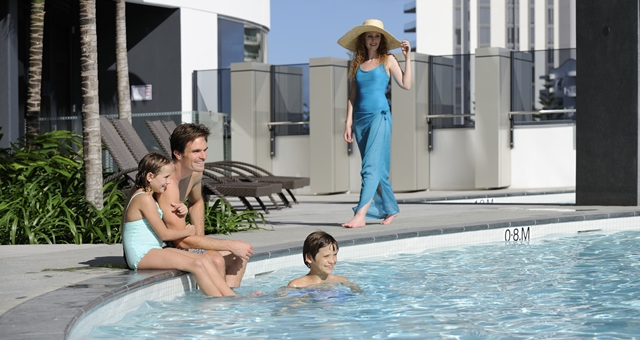
TripAdvisor’s latest TripBarometer study has revealed Australians are planning to spend more on travel in 2015 compared with 2014.
This year, Australians are preparing to spend an average of $14,900 AUD – an increase of 19% on last year.
Of those spending more, over half (52%) will increase their budgets because they are planning a longer trip, and an equal portion (50%) who say it is because they are going somewhere on their ‘wish list’ this year or they’ve been saving up for it.
Australian travellers plan on taking more international trips in 2015, with more international visitors expected locally
Globally, the average number of international leisure trips is set to increase by more than 15% in 2015. Travellers in Turkey, India and New Zealand are showing the highest increase in the average number of international trips they are planning this year. Amongst Australians, the average number of international trips is set to increase by over 36%.
According to the survey, Australia is also amongst the top dream destinations travellers would like to visit in 2015. 29% of global travellers would love to visit Australia in the next two years if money were no object. Specifically, Australia is considered the number one dream destination for several nationalities including Brits, Germans, Canadians, Swiss, Portuguese and Austrians, while the top dream destination for Aussies is Canada.
Conducted on behalf of TripAdvisor by independent research firm Ipsos, the TripBarometer study is the analysis of more than 44,000 global responses from travellers and the hotel sector, with 2,756 respondents from Australia and New Zealand.
The TripBarometer ‘Global Travel Economy’ report reveals worldwide travel trends at country, region and global levels, highlighting year-on-year changes in consumer spending plans and trip planning, as well as hotelier confidence.
“The TripBarometer report paints a positive picture for travel this year, with travellers twice as likely to be increasing their vacation budgets than cutting their spending,” said Barbara Messing, CMO, TripAdvisor.
“Across the board, people want to take more international trips and Australia, Italy and the US continue to be the destinations topping travellers’ wish lists.”
Three in five global travellers (61%) say they are saving money to go on their dream holiday and 38% of travellers are waiting until they have more time to explore the destination properly.
Currency exchange rates are a barrier for 16% of global travellers hoping to visit their dream destination, while one in ten are waiting for their children to be older before taking that once-in-a-lifetime trip.
For Australians, these obstacles to travel may affect more than just the dream vacation; with findings highlighting that more travellers plan to take international trips than ultimately go on them. If money were no object, in the next two years Australians’ top destinations to visit are Canada (42%), United States (40%) Italy (39%).
Accordingly to the survey, Australian businesses reported they are serving more domestic (76%) than international guests (24%) – with 2014/2015 being one of the worst hit years for the deprecating Australian dollar, it appears that Aussies have stayed local as it’s cheaper to travel domestically. Nearly half (46%) of Australian hoteliers say currency exchange will have a positive impact on their profitability in 2015.
Since the inaugural TripBarometer study two years ago, the results have shown a growing confidence in the hotel sector. In 2013, two in three businesses (67%) felt optimistic about their profitability for the year ahead. This year, within Australian, 3 out of 4 businesses (77%) said they felt optimistic about business profitability for 2015.
Half of all businesses (50%) intend to increase their room rates in 2015 – a strong sign of health in the sector. Just over a third (35%) of businesses plan to raise rates by between 3-10 percent, with resorts the most likely to plan increases. Australia will join South Africa (72%), Austria (68%) and Brazil (68%) with 55% of local hoteliers likely to introduce an increase to room rates. Surprisingly however, accommodation in China will see the biggest reductions in 2015, with 18 percent of hoteliers planning to decrease room rates, but up to 10%.
The report shows that investment is set to increase across many aspects of the hotel sector in 2015; however, the planned increase in investment for online reputation management is most notable worldwide. Three in five global hoteliers (60%) will spend more on online reputation management in 2015 and one in four (26%) plan to spend ‘much more’. When asked which elements they feel are most important to the future of their business, online reputation is cited as important by 95 percent of hoteliers, and very important by nearly three in four (73%).
Ninety-four percent of hoteliers in Australia agreed, citing online reputation as one of the most important future business success factors. Of those interviewed, 14% of Australian businesses plan to invest much more in online reputation management in 2015.
A new feature of this year’s TripBarometer is the Hotelier Confidence Index, which measures confidence levels across the global hotel sector in 27 major tourism markets. The index looks at hoteliers’ profitability expectations, year on year shifts in room rates and investment plans for 2015. Each country is given a score on a five-point scale (five being the highest) and ranked, to show how they compare to other key tourism markets.
“This year’s TripBarometer reveals a rising confidence in the global hotel sector, with one in two hoteliers raising room rates and a significant growth in optimism worldwide,” said Marc Charron, president, TripAdvisor for Business.
“Increasing repeat business, driving more direct bookings, and encouraging online traveller reviews will be key themes for the hotel sector this year.”
Australia ranked 12th on the index ranking in the overall Hotelier Confidence Index.

